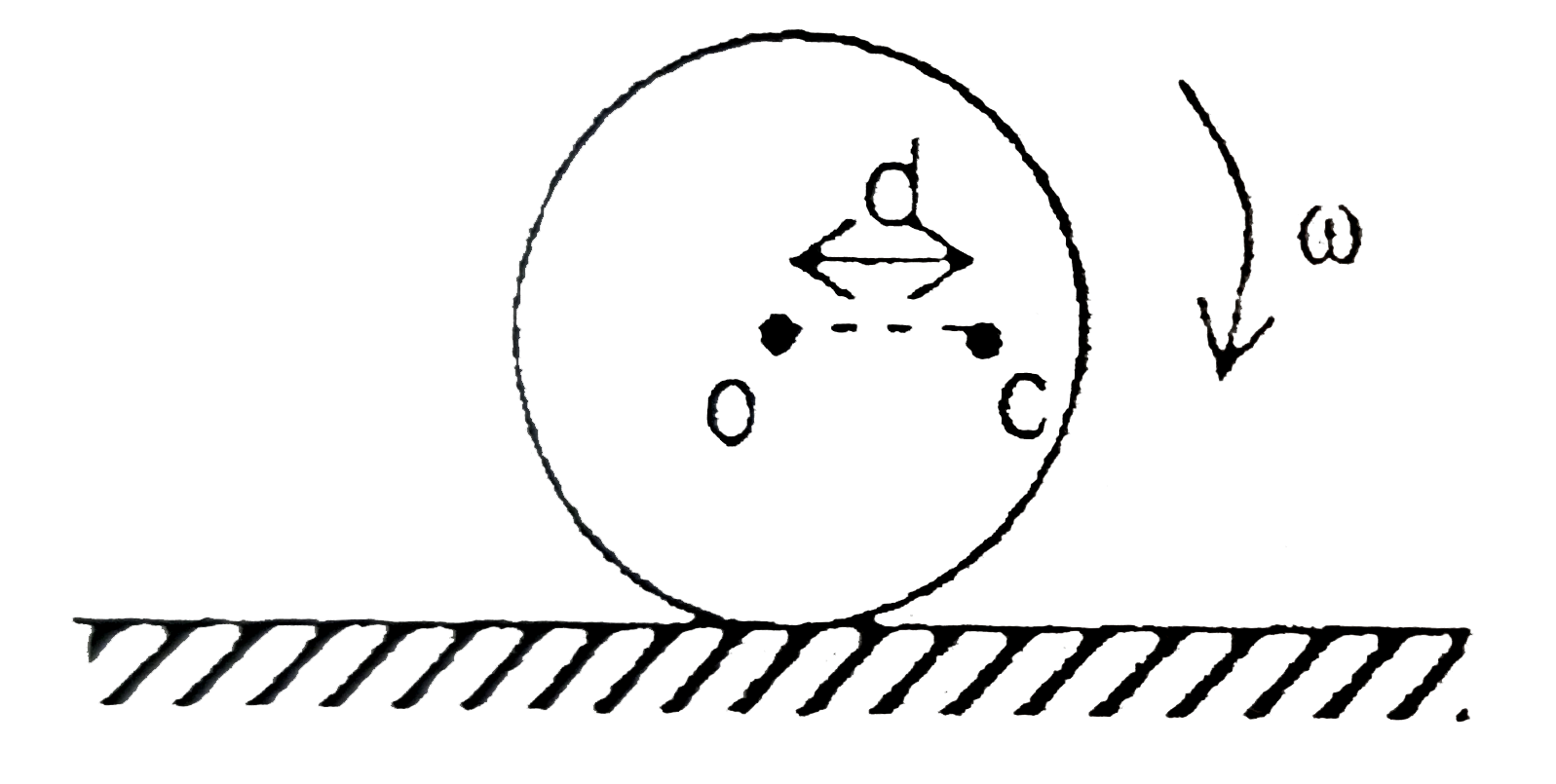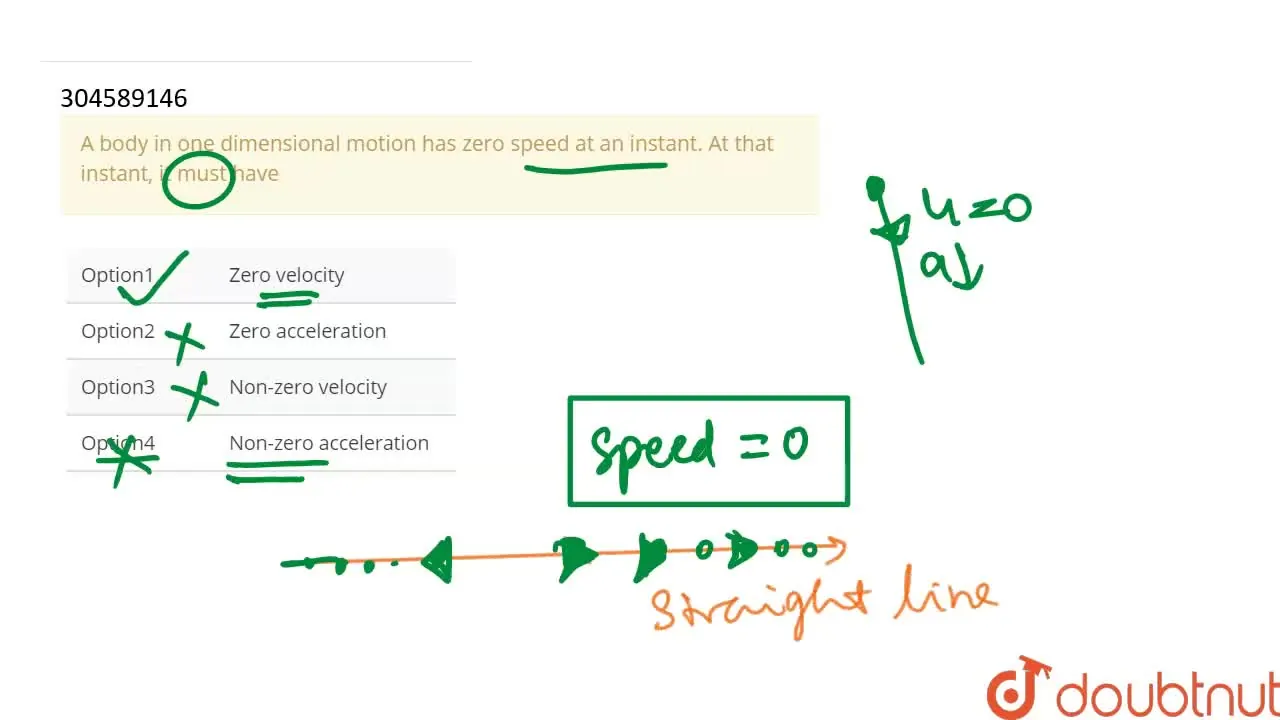A body in one dimensional motion has zero speed at an instant. At that instant, it must have
Zero acceleration
Non-zero acceleration
Zero velocity
Non-zero velocity
The correct Answer is:C
Acceleration of the particle can be zero as well as non-zero, but when speed of the partcle is zero then its velocity is zero for sure at the same instant. Hence option (c ) is correct.
Related Playlists
- BOOK - MODERN PUBLICATIONCHAPTER - MOTION IN A STRAIGHT LINE EXERCISE - COMPETITION FILE ( B.(MULTIPLE CHOICE QUESTIONS))74videos
MOTION IN A STRAIGHT LINE
- BOOK - MODERN PUBLICATIONCHAPTER - MOTION IN A STRAIGHT LINE EXERCISE - COMPETITION FILE ( C.(MULTIPLE CHOICE QUESTIONS))13videos
MOTION IN A STRAIGHT LINE
- BOOK - MODERN PUBLICATIONCHAPTER - MOTION IN A STRAIGHT LINE EXERCISE - REVISION EXERCISE (NUMERICAL PROBLEMS )7videos
MOTION IN A STRAIGHT LINE
- BOOK - MODERN PUBLICATIONCHAPTER - MOTION IN A PLANE EXERCISE - Chapter Practice Test15videos
MOTION IN A PLANE
- BOOK - MODERN PUBLICATIONCHAPTER - OSCILLATIONS EXERCISE - Practice Test (For Board Examination)12videos
OSCILLATIONS
Similar Questions
For the one dimensional motion, described by x=t−sint
View SolutionCan a prticle in one- dimensional motion have zero speed and a non-zero velocity ?
View SolutionFor a moving body at any instant of time
View SolutionFor a particle in one dimensional motion, the instantaeous speed is always equal to the magnitude of instantaneous velocity. Why ?
View SolutionIn one dimensional motion, instantaneous speed v satisfies (0≤v<v0).
View SolutionIn one dimensional motion, instantaneous speed y satisfies the condition 0 −VoT<x<voT
3) the acceleration is always a 1 - negative number 4) the motion has no turning pointsView SolutionTwo bodies of unequal masses are dropped from a cliff. At any instant, they have equal
View SolutionA solid sphere is rolling on a rough surface, whose centre of mass is at C at a certain instant. Find at that instant it has angular velocity ω. Its radius is R. Find the angular acceleration at that instant mass of sphere is m
 View Solution
View SolutionA body executing uniform circular motion has at any instant its velocity vector and acceleration vector
View SolutionA particle starts simple harmonic motion from the mean position. Its amplitude is a and total energy E . At one instant its kinetic energy is 3E/4 . Its displacement at that instant is
View Solution


